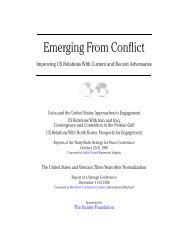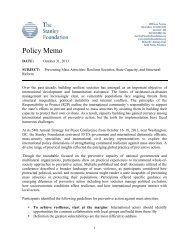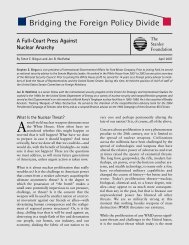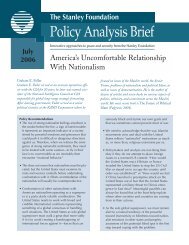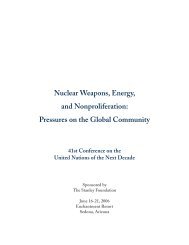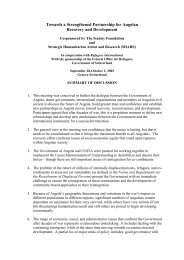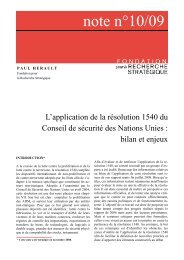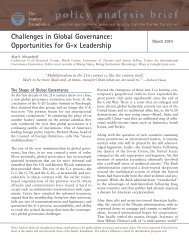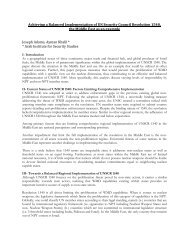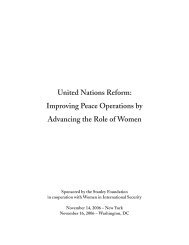444 By Susan Ariel Aaronson and David Deese With a reaction by ...
444 By Susan Ariel Aaronson and David Deese With a reaction by ...
444 By Susan Ariel Aaronson and David Deese With a reaction by ...
- No tags were found...
You also want an ePaper? Increase the reach of your titles
YUMPU automatically turns print PDFs into web optimized ePapers that Google loves.
oppose a government’s policies <strong>and</strong> corruption, yet such groups may also fund theiroperations through illegal trade in extractive commodities such as oil, diamonds, gold, orcoltan.177 Meanwhile, governments may rely on repression to stay in power <strong>and</strong> spendsignificant amounts of their GNP on military expenditures.Extractive Industries Transparency InitiativeHowever, energy companies can help to end this negative cycle. The resourcecurse presents an opportunity for the public interest <strong>and</strong> the business interest to coalesce.Citizens in these countries <strong>and</strong> shareholders of extractive industry firms both benefit fromgovernance that is transparent, accountable, equitable, <strong>and</strong> efficient. Both want to avoidcorruption. Citizens want to avoid corruption because it makes it difficult for citizens toinfluence government; it can exacerbate poverty <strong>and</strong> inequality, <strong>and</strong> it can leadgovernments to ignore the needs of their citizens (a feedback loop is not created).Business wants to avoid corruption because it increases many types of risks to the firm’sshort <strong>and</strong> long term management. To meet their shared interest, many internationalenergy <strong>and</strong> mining firms have “embraced” an initiative devised <strong>by</strong> the Britishgovernment –the Extractive Industries Transparency Initiative (EITI.) The EITI is aprocess put forth <strong>by</strong> the British government in 2003 to help developing countrieseffectively manage extractive industry revenues. If governments fully implement theEITI, they may, over time, create a feedback loop that allows citizens to monitorgovernment revenues <strong>and</strong> expenditures <strong>and</strong> to hold governments accountable.178The EITI does not ask very much of companies operating in countries that havechosen to implement the EITI (as of June 2008, 23 countries.) They are simply requiredto disclose all material payments to the government, provide a clear endorsement of EITI461



